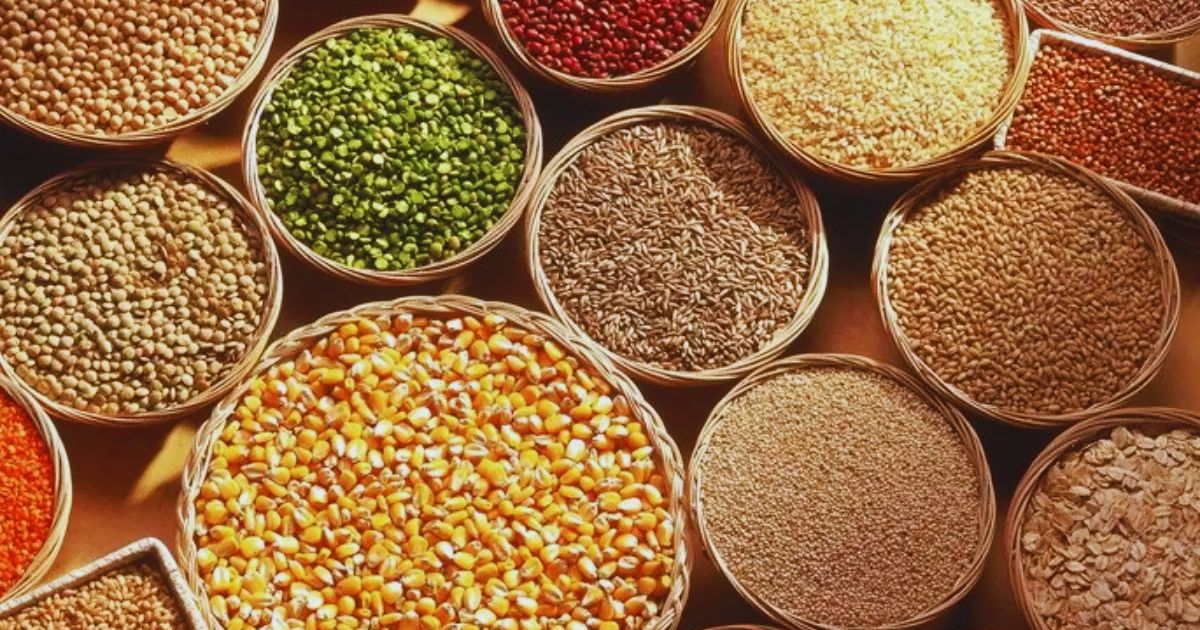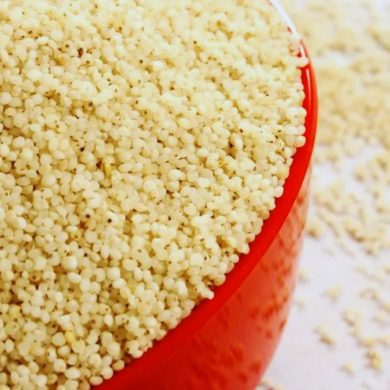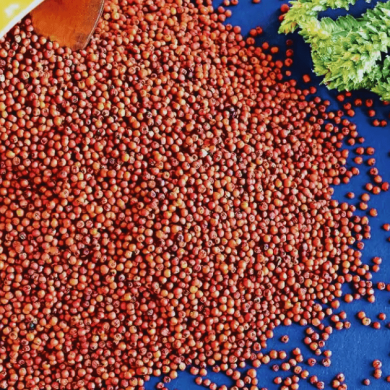No products in the cart.
Return To Shop10 Different Types of Millets and Their Benefits
Millets are a popular crop that belongs to the Poaceae family of grasses and is native to Asia and Africa. These crops have small seeds, are easy to grow and have many health benefits. Millets can grow in any soil and even as a mixed crop, and rainfall is not necessary for millet crops to flourish. These are also extremely resilient to harsh weather, including drought, but despite that, when it comes to the composition, it is nearly identical to that of other cereal grains. Millet grains have many nutritional health benefits and depending on the type of millet grain, the nutritional composition can vary.
Here are 10 different types of millet that people love because of their health benefits:
Sorghum Millet: Increases Metabolism
In India, the term jowar refers to Sorghum millet, with Maharashtra and Karnataka being the leading producers of this crop. Sorghum millet has a somewhat sweet flavor and is high in iron, protein, and fiber, and as a result, Sorghum millet has several health advantages. Jowar is a nutritious alternative that those who are sensitive to gluten can use and it is rich in macronutrients and contains higher-intensity antioxidants, which means regular consumption of jowar might enhance metabolic activity and provide general stamina.
Finger Millet: Rich in Antioxidants
One of the most popular millets in the world is finger millet, sometimes known as ragi, and it is a healthier option to wheat and rice because it is gluten-free. Fitness enthusiasts choose ragi because it is high in iron and other minerals and Ragi’s nutrient composites are intimately linked to children’s physical and mental development. The richness of amino acids maintains you youthful and healthy by meeting a significant portion of your daily antioxidant needs.
Horse Gram: Lowers Blood Sugar Levels
Horse gram lowers blood sugar levels while also lowering insulin resistance and improving the breakdown of carbohydrates. Most people soak it in water overnight before cooking it the next day because this process can enhance its nutritional benefits.
Pearl Millet: Good for Insomnia
Pearl millet is an excellent source of iron, and combats sleeplessness and aids in physical relaxation as well. You can benefit from several health benefits, including an increase in energy, and increased cell growth, that it provides.
Kodo Millet: Contains Vitamins and Minerals
Lecithin is an amino acid that is abundant in Kodo millet, which is excellent for bolstering the nervous system. A wealth of vitamins and minerals, including vitamin B6, folic acid, calcium, iron, zinc, and potassium, may be found in this amazing millet and for those who are sensitive to gluten, this substitute millet is quite helpful because you can reduce your cholesterol and improve your cardiovascular health by choosing Kodo millet.

Barnyard Millet: Good for Weight Loss
This millet’s nutritional profile, which includes a lot of fiber, makes it the perfect choice for weight loss because it takes longer to digest and fill the stomach for extended periods of time. This process helps you avoid overindulging and all it takes to lose weight is to include this millet in at least one meal a day.
Proso Millet: Keeps the Nervous System Healthy
Proso millet has a very high lecithin content which is the substance that maintains the nervous system’s proper operations. The ability of Proso millet to help balance blood sugar levels is also quite significant.
Little Millet: Good for Bone Health
Little millet is rich in potassium, zinc, calcium, and iron which makes it the ideal crop for people who need to take care of their bone health.
Browntop Millet: Completely Gluten-free
Browntop millet’s high fiber content makes it a great meal for weight reduction but most importantly, this millet is entirely gluten-free. In addition to its many health advantages, the gluten-free millet improves heart health, aids in digestion, and strengthens bones.
Buckwheat Millet: Good for Diabetics
People with high blood sugar levels can benefit from this millet, and it also maintains blood pressure levels as well. When consumed regularly, this millet grain can help shed extra weight and is beneficial for heart health.









Add comment